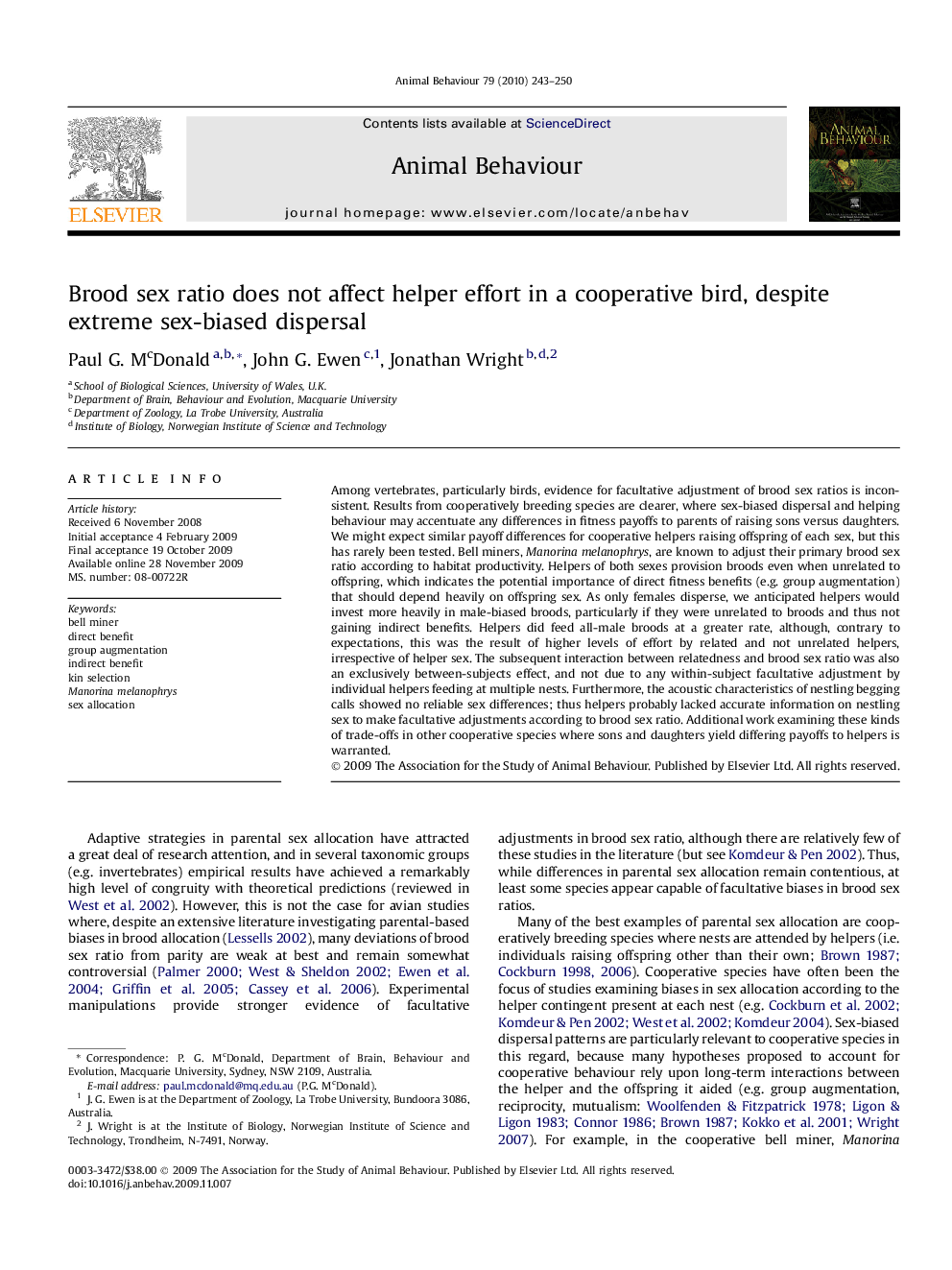| Article ID | Journal | Published Year | Pages | File Type |
|---|---|---|---|---|
| 2417727 | Animal Behaviour | 2010 | 8 Pages |
Abstract
Among vertebrates, particularly birds, evidence for facultative adjustment of brood sex ratios is inconsistent. Results from cooperatively breeding species are clearer, where sex-biased dispersal and helping behaviour may accentuate any differences in fitness payoffs to parents of raising sons versus daughters. We might expect similar payoff differences for cooperative helpers raising offspring of each sex, but this has rarely been tested. Bell miners, Manorina melanophrys, are known to adjust their primary brood sex ratio according to habitat productivity. Helpers of both sexes provision broods even when unrelated to offspring, which indicates the potential importance of direct fitness benefits (e.g. group augmentation) that should depend heavily on offspring sex. As only females disperse, we anticipated helpers would invest more heavily in male-biased broods, particularly if they were unrelated to broods and thus not gaining indirect benefits. Helpers did feed all-male broods at a greater rate, although, contrary to expectations, this was the result of higher levels of effort by related and not unrelated helpers, irrespective of helper sex. The subsequent interaction between relatedness and brood sex ratio was also an exclusively between-subjects effect, and not due to any within-subject facultative adjustment by individual helpers feeding at multiple nests. Furthermore, the acoustic characteristics of nestling begging calls showed no reliable sex differences; thus helpers probably lacked accurate information on nestling sex to make facultative adjustments according to brood sex ratio. Additional work examining these kinds of trade-offs in other cooperative species where sons and daughters yield differing payoffs to helpers is warranted.
Related Topics
Life Sciences
Agricultural and Biological Sciences
Animal Science and Zoology
Authors
Paul G. McDonald, John G. Ewen, Jonathan Wright,
